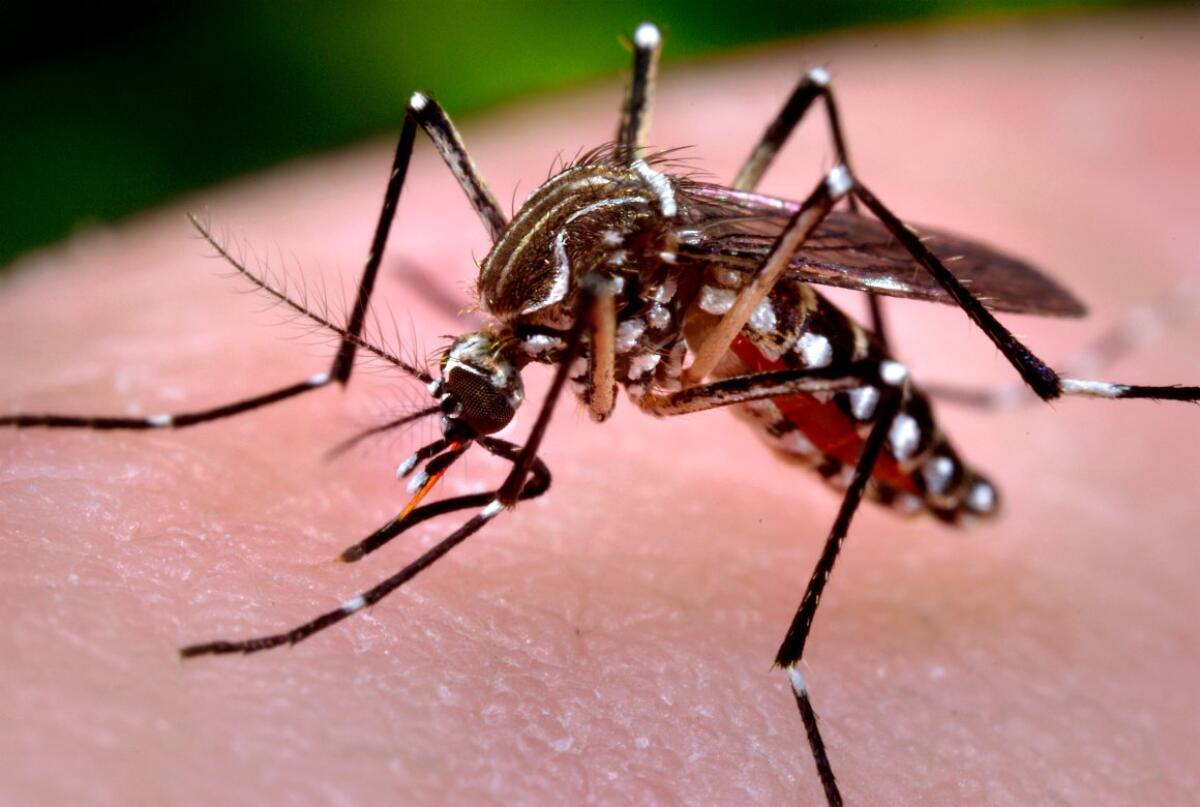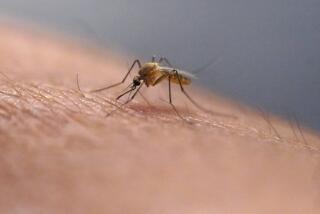Rare case of mosquito-borne dengue diagnosed in Pasadena

A case of locally acquired dengue, a virus transmitted by mosquitoes, was detected in Pasadena on Friday, according to the Pasadena Public Health Department.
The instance is “extremely rare,” officials said, with the afflicted person being the first known case in California among someone who had not recently traveled.
Symptoms of dengue can range from mild to severe and include fever, skin rash, headaches and muscle and joint pain, according to the U.S. Centers for Disease Control and Prevention. Severe cases can be life-threatening and require critical care. Most cases resolve within two to seven days.
In a statement, Pasadena epidemiologist Dr. Matthew Feaster said public health officials have been monitoring for mosquito-borne diseases such as dengue.
“Our work so far, in partnership with the Vector Control District, gives us confidence that this was likely an isolated incident and that there is very low risk of additional dengue exposure in Pasadena,” Feaster said.
Public health officials presume the victim, who is unidentified and said to be recovering, probably caught the disease from a mosquito that had bitten someone already infected with dengue. Dengue is rare in the United States but endemic to other countries and can be transmitted by travelers to areas where dengue is found.
You’re not imagining it. Fortunately, there are some DIY ways to keep the critters out of your house and off your skin.
In response to the case, public health officials have visited the neighborhood where the case was diagnosed to inform residents about preventing bites from Aedes aegypti, commonly known as the yellow fever mosquito, which transmits the disease and has seen a population boom in Southern California.
The San Gabriel Valley Mosquito and Vector Control District has also deployed traps and test samples, though they have yet to identify any specimens carrying dengue. Tests will continue for the next few weeks, Pasadena officials said.
Dengue has no vaccines to prevent or medicines to treat the disease. Care for dengue cases includes rest, drinking fluids and closely monitoring symptoms.
More to Read
Sign up for Essential California
The most important California stories and recommendations in your inbox every morning.
You may occasionally receive promotional content from the Los Angeles Times.











